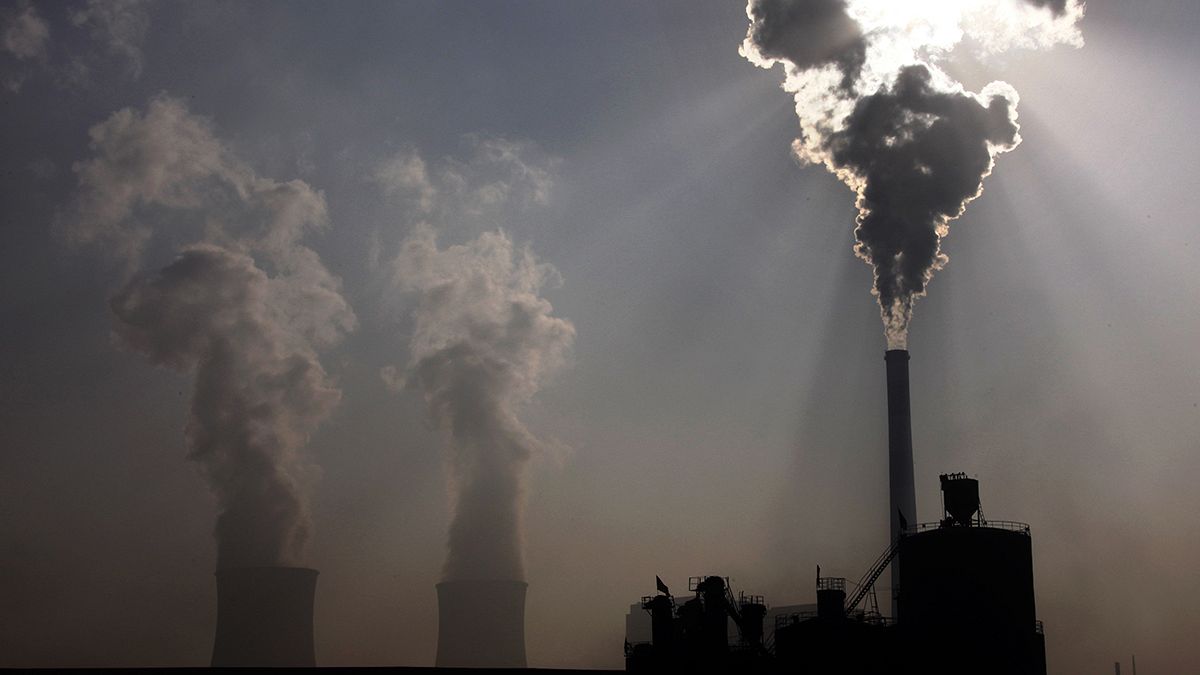Carbon emissions increased in the EU last year, new data published just months after the COP21 climate deal has revealed. Green campaigners say it is
Carbon emissions increased in the EU last year, new data published just months after the COP21 climate deal has revealed.
Green campaigners say it is a worrying trend and reinforces the ‘urgent’ need to move to renewable energy sources.
CO2 emissions, which make up as much as four-fifths of total greenhouse gas output, rose by 0.7 percent in 2015, compared with the previous year, according to Eurostat estimates.
Increases in two-thirds of EU states – including Slovakia, Portugal and Hungary – saw the bloc buck a trend of decreasing CO2 emissions in the last few years.
The EU committed at COP21 in Paris to cut greenhouse gas emissions by at least 40 percent by 2030, a target experts believe it is still on course to achieve.
Continues below
German concern
Of the EU’s five biggest CO2 polluters – Germany, Italy, France, Poland and the UK – only the latter decreased emissions last year.
Germany, whose output didn’t change year-on-year, produces nearly a quarter of the EU’s CO2 emissions and has nearly a third of the EU’s top polluting power plants.
Wendel Trio, director of Climate Action Network Europe, told Euronews the country was a concern.
“Germany has been struggling with the impact of its energiewende, where they are trying to get out of nuclear energy, which has reduced their capacity to phase out coal,” he said. “There is a decrease in the use of coal in Germany but they are still very much reliant on it and that’s actually why they are not on track to meet their own individual [CO2 emission reduction] targets.”
But while Germany has recently published renewable energy plans there is seemingly reluctance over the border in Poland to make the same transition.
“For Poland it’s a general concern that Poland is not really giving a lot of attention to implementing forward-looking energy and climate policy,” said Trio, adding this is partly down to coalminers’ role in getting rid of communism and government support for this sector.
Three states ‘not on track’ on CO2 emissions
Trio said he was most concerned about Belgium, Ireland and Austria, claiming they were not on track to meet 2020 greenhouse gas emission targets.
He said: “These three countries’ emissions have increased and they have been mentioned by the European Commission as states that are not on track to reach their 2020 objectives on the basis of numbers from 2014.
“The fact they are increasing their emissions in 2015 is definitely not a good sign, that these countries have not taken the European Commission’s warnings seriously.
“They are all countries that struggle with, in particular, transport emissions, which I think is an important element of growing emission reductions. They will need to take measures. It’s clear that they will have to do that, they’ve been trying to postpone.
Moving to renewable energy
Bram Claeys, policy advisor on climate change and energy at Greenpeace EU, reacting to the figures, said: “It’s very concerning that emissions have increased slightly, it’s not the trend we need or want to see.
“It breaks the trend of decreasing emissions for three to four years, especially right after the Paris climate agreement.
“We are worried and we think Europe has some catching up to do in investments in renewable energy, where we’ve been lagging [behind] other economies.”
He called for more leadership at EU and national government level to show a clear vision for moving to renewable energy.
Figures show 16 percent of energy consumed in the bloc is produced from renewable energy – the target is to hit 20 percent in four years’ time.
“The UK is really troubling, it’s scaling back its investment and support in renewable energy and instead choosing false and economically-risky solutions like nuclear energy, seemingly against all rational advice.”
Listen to the interview
This is the full interview with Wendel Trio, director of Climate Action Network Europe.
